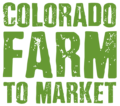Definition: Popcorn is any of several varieties of corn whose kernels burst open and puff out when subjected to dry heat, often flavored with salt and butter or sugar. Candied nuts are nuts that have been cooked with sugar, creating a candy coating. Roasted nuts are nuts that have been heated until they are browned and often topped with salt and other flavorings. Confectioneries include candy, honey sticks and other sweets.
Food Safety: Proper food handling, food safety, and sanitation practices should be followed diligently for those offering ready-to-eat foods. Food handlers must wash their hands frequently; not just after using the restroom, eating, smoking, or touching the face or mouth. Food handling employees must wear gloves or use some other barrier so that bare hands do not directly contact the food. Suitable utensils such as deli paper, spatulas, tongs, and dispensing equipment must be used. Temperatures for hot holding and cold holding must be taken and recorded at regular intervals to assure the food is maintaining safe temperature. Please visit the Food Safety page for time and temperature information on proper cooking, holding, and storage temperatures for ready-to-eat food products.
Distribution Method | Collapse All)
You are selling your product at a farmers’ market, CSA, roadside stand, or other direct to consumer outlet
Popcorn and Nuts
- If you are selling popcorn which is plain, seasoned with salt, buttered, or sugared (e.g., kettle corn), you are are not required to obtain a retail food establishment license. These establishments are regulated under the Colorado Pure Food and Drug Law and the Current Good Manufacturing Practice in Manufacturing, Packing, or Holding Human Food (GMP). Contact the Colorado Department of Public Health and Environment (CDPHE) for more information.
- If you are selling caramelized nuts, roasted almonds, caramel or candied popcorn are you will need a Retail Food Establishment License, issued by your county health department. If you sell at farmers’ markets or other direct to consumer outlets in different counties, you should check with the health department in each county where you sell your product direct to consumers. Vendors are subject to plan review fees, including menu submission. Vendors may be prohibited from selling some or all potentially hazardous foods for immediate consumption, unless they have a mobile unit or pushcart that is commercially designed and approved to handle food preparation and service. The equipment must be certified or classified.
Confectioneries you have produced
- If you use potentially hazardous foods in your production process, you will need a Retail Food Establishment License, issued by your county health department both for selling both wrapped and unwrapped products. Potentially hazardous foods include eggs and milk but would not include flour and yeast.
- If you do not use potentially hazardous foods in your production process and you are selling unwrapped confectioneries, you will need a Retail Food Establishment License, issued by your county health department.
- If you do not use potentially hazardous foods in your production process and you are selling wrapped confectioneries you are exempt from licensing at the market, but you must obtain items from an approved source or be licensed where items are processed.
- All food processors must register their processing facility with the Food and Drug Administration (FDA).
Confectioneries produced by someone else
- If you are selling unwrapped confectioneries, you will need a Retail Food Establishment License, issued by your county health department.
- If you are selling wrapped confectioneries you are exempt from licensing but you must purchase from a licensed wholesaler.
Labeling: If you are selling wrapped popcorn, nuts or confectioneries you will need to follow the general labeling requirements. If you are selling unwrapped popcorn, nuts, or confectioneries no label is required.
Sales Tax Liability: General sales tax information.
Weights and Measures: If you choose to sell your product by weight, you must follow the Colorado weights and measures requirements. If you choose to sell your products by another method, they do not fall under regulations in this category.
You are selling your product to a store, restaurant, food cart, K-12 school, university, hospital, or other retail food establishment
All food processors must register their processing facility with the Food and Drug Administration (FDA)
Note that if you are selling at farmers’ market and as a wholesaler, you will need a to obtain a retail food establishment license and register as a wholesale food manufacturer.
Labeling: General labeling requirements.
Sales Tax Liability: General sales tax information.
Weights and Measures: If you are selling your product by weight, you must follow the Colorado weights and measures requirements. If you are selling your product by some other measure, there are no regulations in this category.
Related Links:
